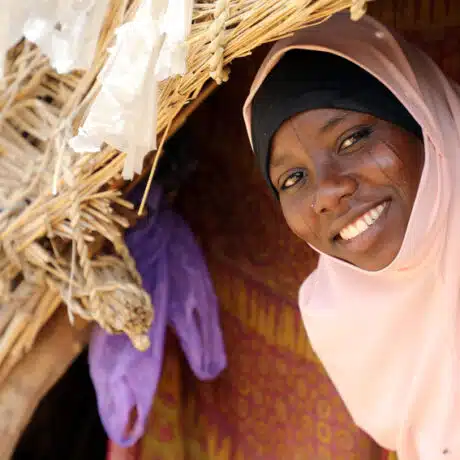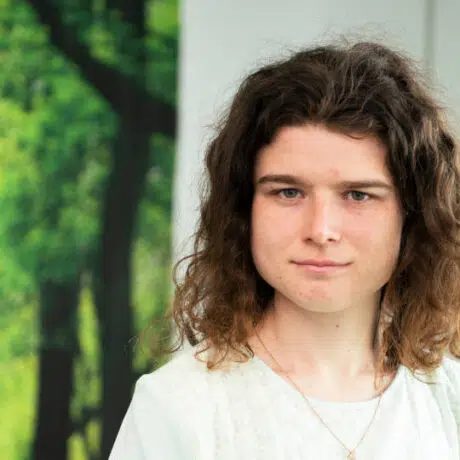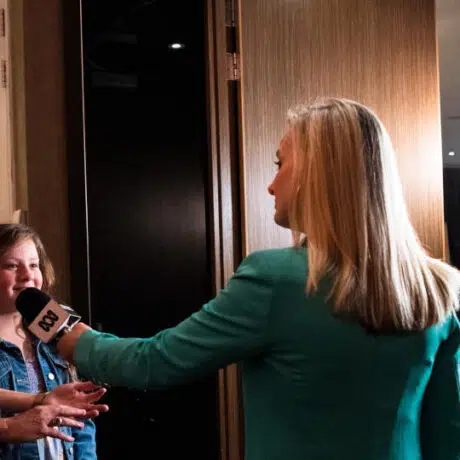News and Stories - Girls Rights - 27 September 2018
Safer Cities for Girls

All over the world, women and girls face street harassment every day. No matter what city you live in it’s unlikely you’ll come across a young woman who hasn’t been made to feel uncomfortable in public spaces.
“Most days when I’m coming home from school, boys and men on motorbikes catcall or tease me. Sometimes they try to touch me too. If I’m alone, I’m very scared.” Lan, 16.
Lan is harassed every other day, with strange men trying to talk to her or touch her. So when Lan catches the bus she travels with a friend for protection. Once, they were separated on board and her friend was inappropriately touched – leaving her scared and upset.
“If a girl is sexually harassed, she usually keeps it a secret. If she tells her family, they may be very angry and blame her for what happened. People in the community might start talking about her too and start a rumour. It’s a bad experience for girls, so we usually keep silent.” Ngoc, 15.
Ngoc cycles through a dark tunnel and a busy market to get to school. She is often harassed along the way.
When Ngoc was waiting to take an exam, a man drove past on a motorbike and flashed his genitals at her. Scared, she ran so the man couldn’t abuse her – but she never felt she could tell her friends or her mother.
We know these everyday experiences impact girls’ confidence to participate and be active members of their community. And we know what a loss that is to communities and to the potential of young women everywhere.
There are so many layers to the issue of street harassment. Which is why we’re so encouraged by our Champions of Change in Vietnam like Ngoc and Lan who are challenging the attitudes and behaviours that make girls feel unsafe.
Champions of Change clubs – part of our Safer Cities program – are creating a new generation of change advocates.
We know that if we’re going to see real change, we have to work with girls and boys to drive it. Champions of Change gives girls the tools to identify risky situations so they can run or call for help but it also promotes equal friendships between girls and boys and helps boys to understand what behaviour is unacceptable.
“We aren’t just working with girls – we’re working with boys too.” Lan, our Safer Cities project manager in Vietnam says. “We’re teaching them how to grow up with the right attitude about sexual harassment and how to take action if they see it happening. We’re encouraging boys and girls to talk together, and see each other as equals.”
The club also opens lines of communication between children and families so young people feel safe to ask for help and advice. We’re also working with parents so they know how to support their daughters if they are attacked and to challenge beliefs and stereotypes that make sexual harassment acceptable.
But that’s just part of the picture.
30% of girls in Hanoi have experienced sexual harassment on public transport, and only two out of 10 people take action when they see it happening.
Our Safer Cities program has seen 575 transit staff and key leaders from 20 bus companies receive sexual harassment training and over 500 buses fitted with security cameras.
Bystanders are being encouraged to intervene too, with anti-harassment messages on buses, ticket booth and bus stops seen by hundreds of thousands of passengers a day.
Male passengers have been targeted with a series of live radio broadcasts, posters and magazines making clear what behaviour was unacceptable and why.
10,000 comic books have been distributed to girls teaching them how to respond to and avoid harassment.
The program also works with the Government and law enforcement to make sure sexual abuse is taken seriously whenever it’s reported, and make sure women and girls get the best protection possible.
“I now know that if I see something a girl being teased or catcalled, I can speak up and other people will help me support and protect her.” 16-year-old Lan says.
“We know the Safer Cities program empowers girls. It gives them the knowledge and skills to protect themselves from sexual harassment on the way to school, at home and in their school. So it’s very important that we continue it and expand it to reach the millions of girls here in Vietnam who experience sexual harassment every day.” Lan from our Vietnam office tells us.
That’s why we’re raising funds to help grow this program. We know it works, and that if we continue to drive change in families, communities and at a government level while empowering young people to have a voice and know their rights, we can end harassment in cities across the globe.
We want to reach even more young people with this program we know works, so that no girl has to feel unsafe in her own city. You can help us get there by donating today.
Plan International Australia’s Safer Cities program is working in Hanoi, Vietnam; Kampala, Uganda and in Honiara, Solomon Islands and is supported by the Australian Government through the Australian NGO Cooperation Program (ANCP) and complemented with funds generously donated to Plan International Australia from the Australian public.




